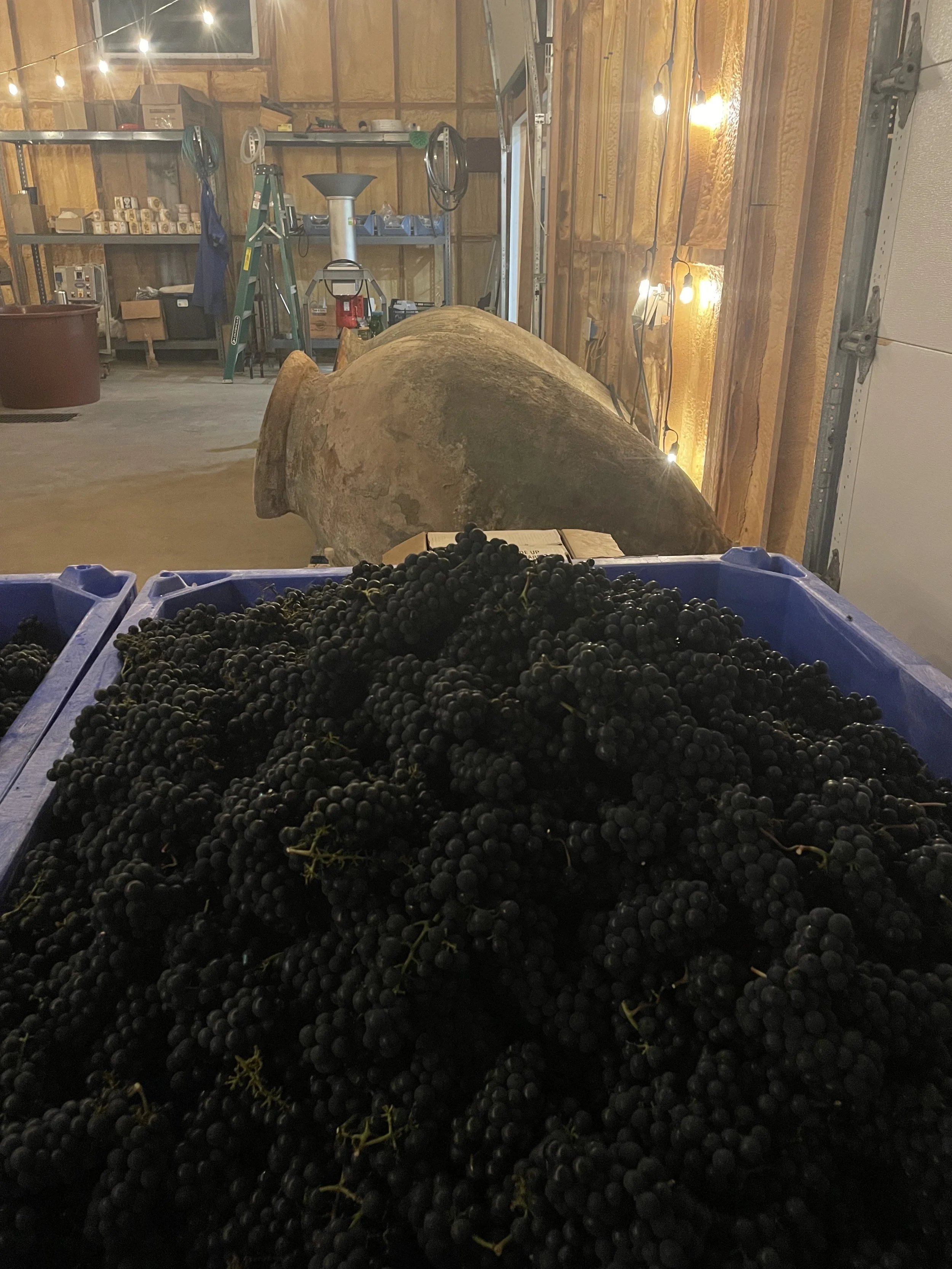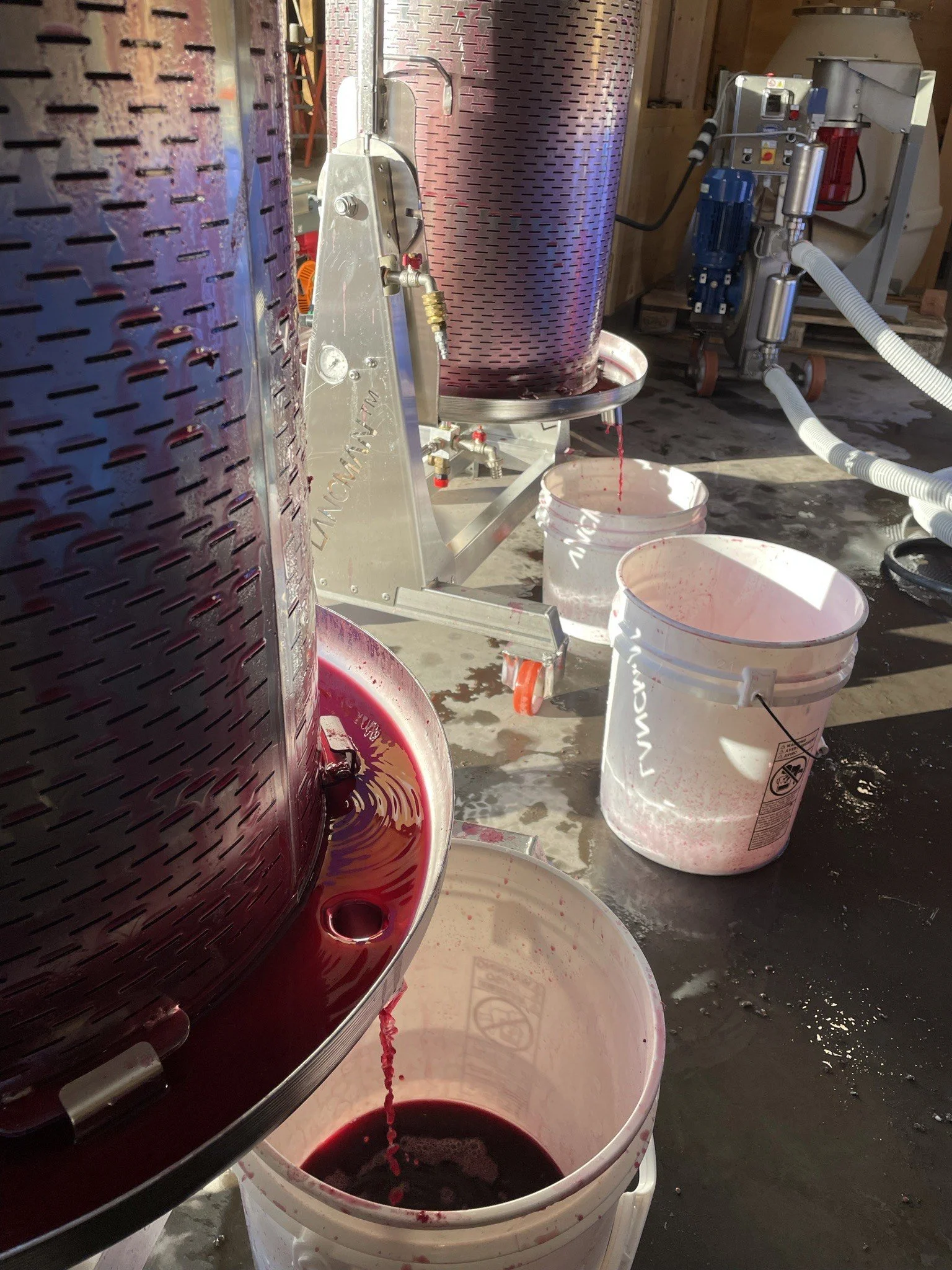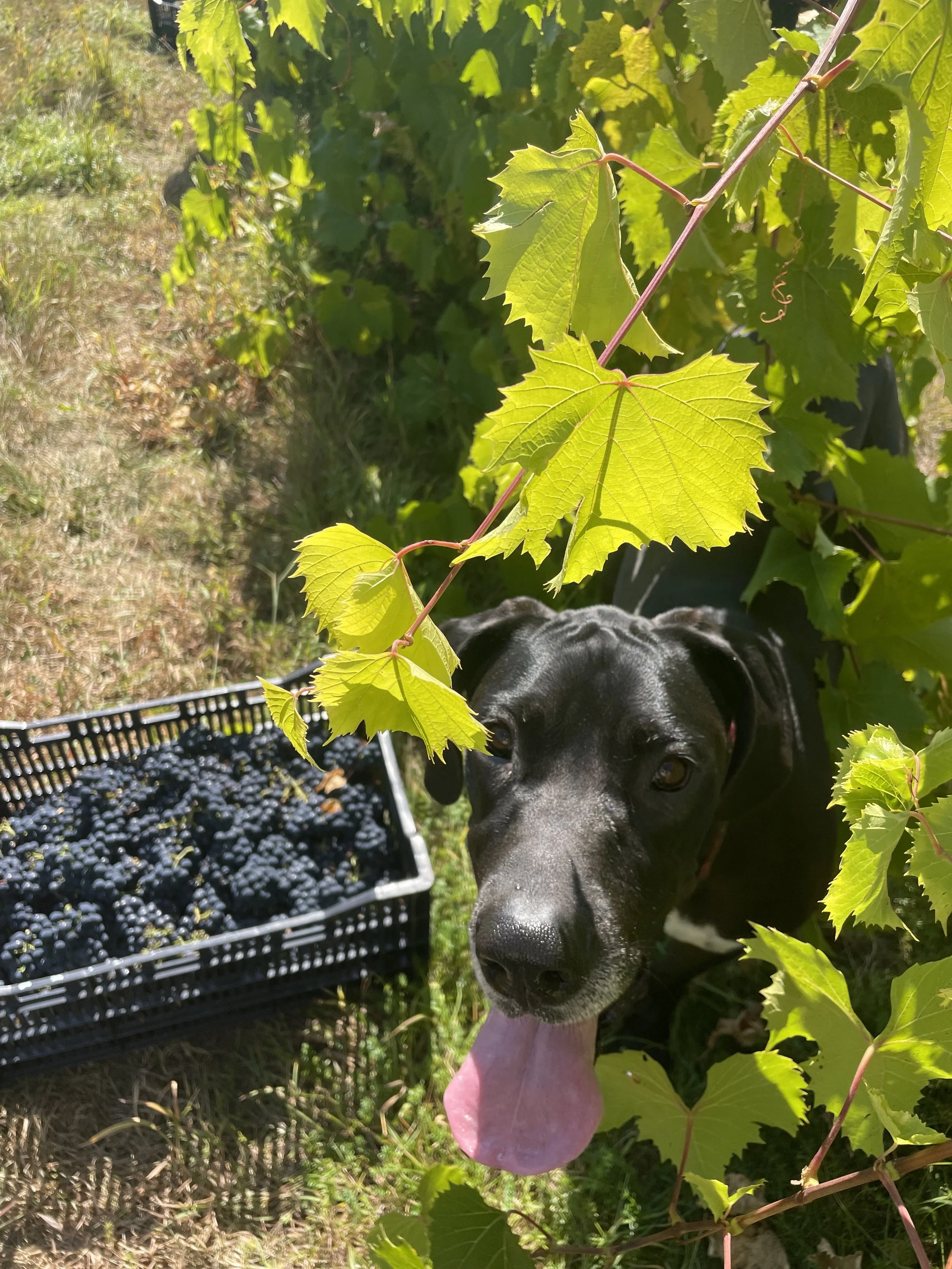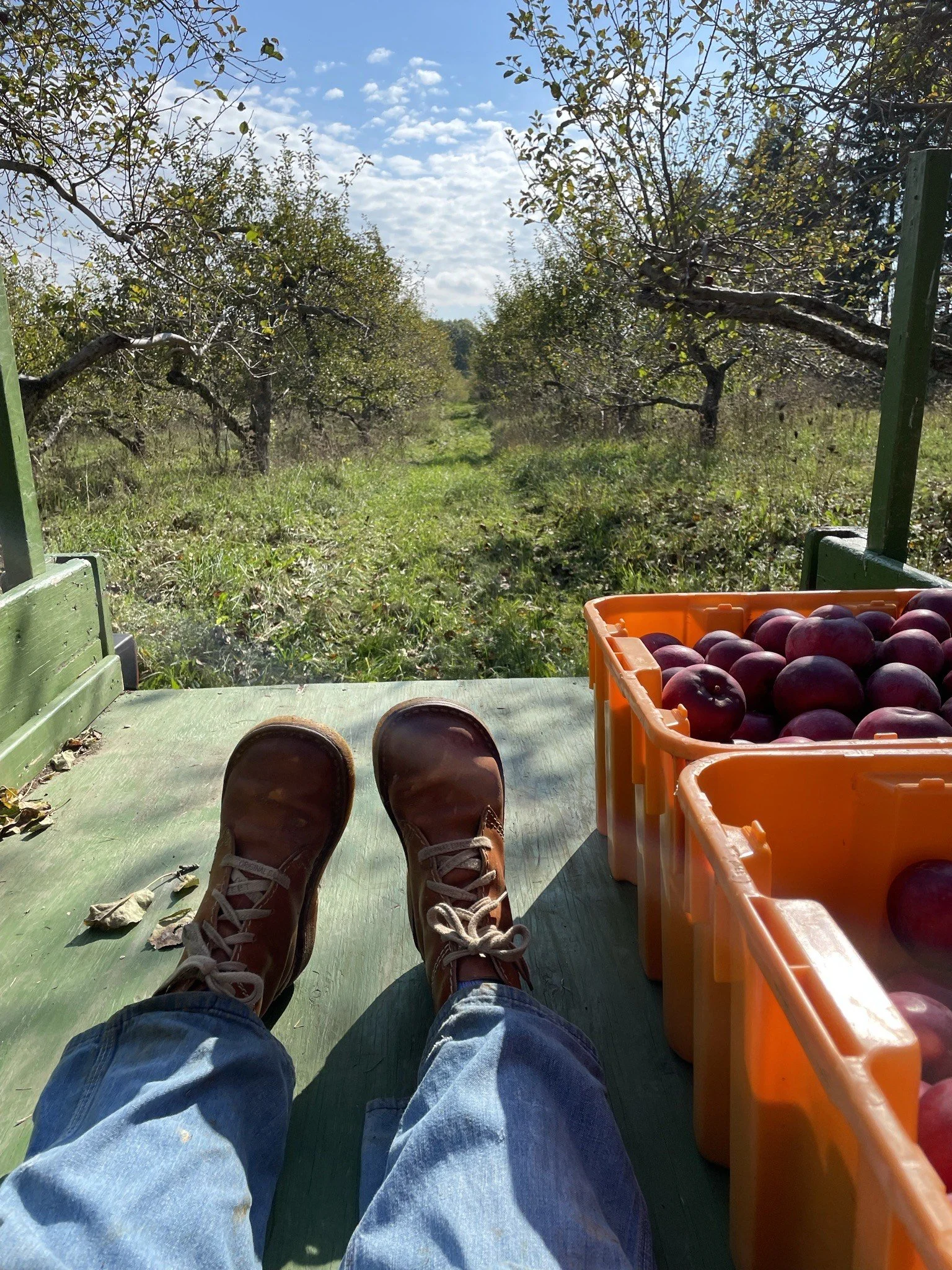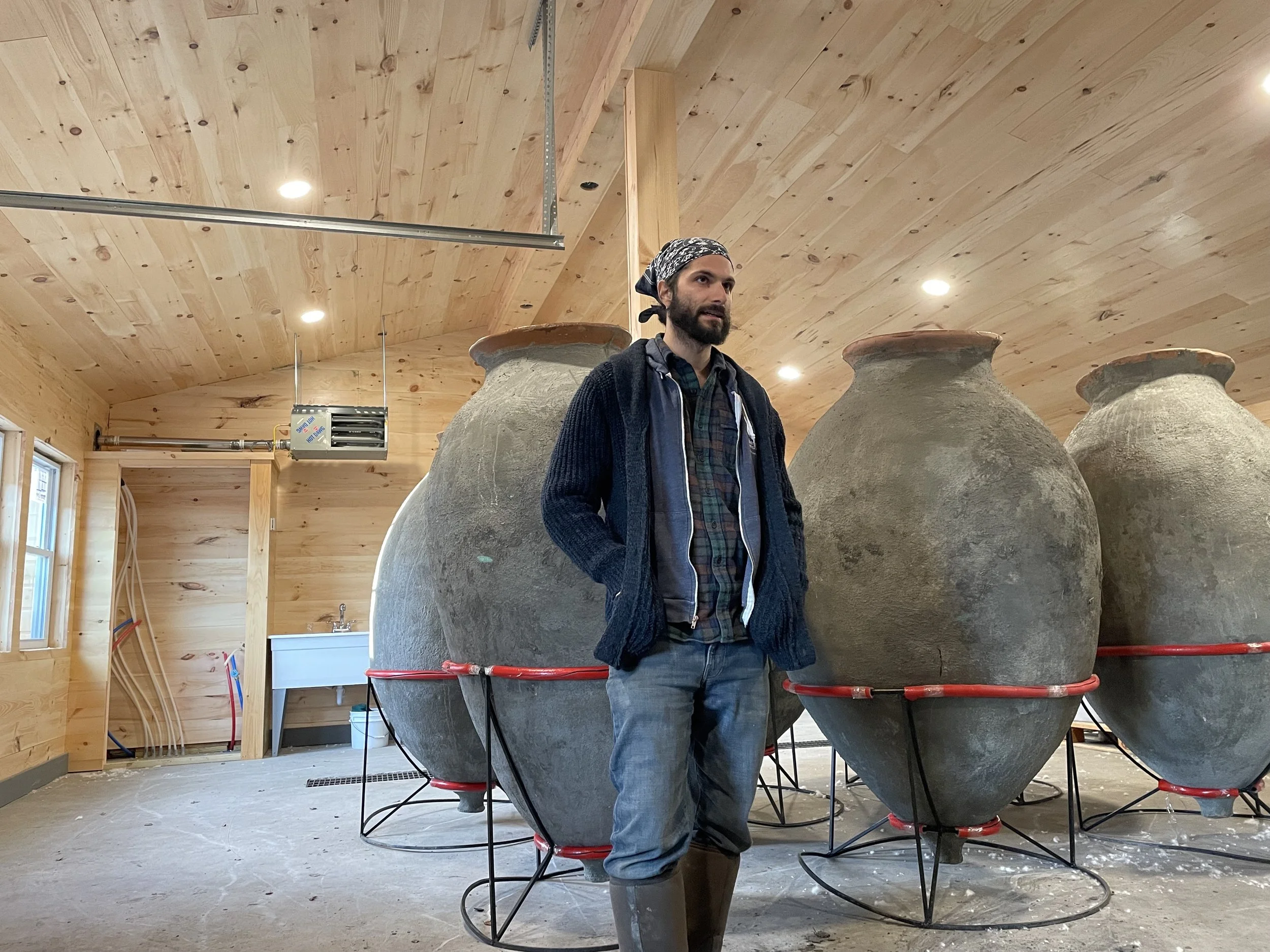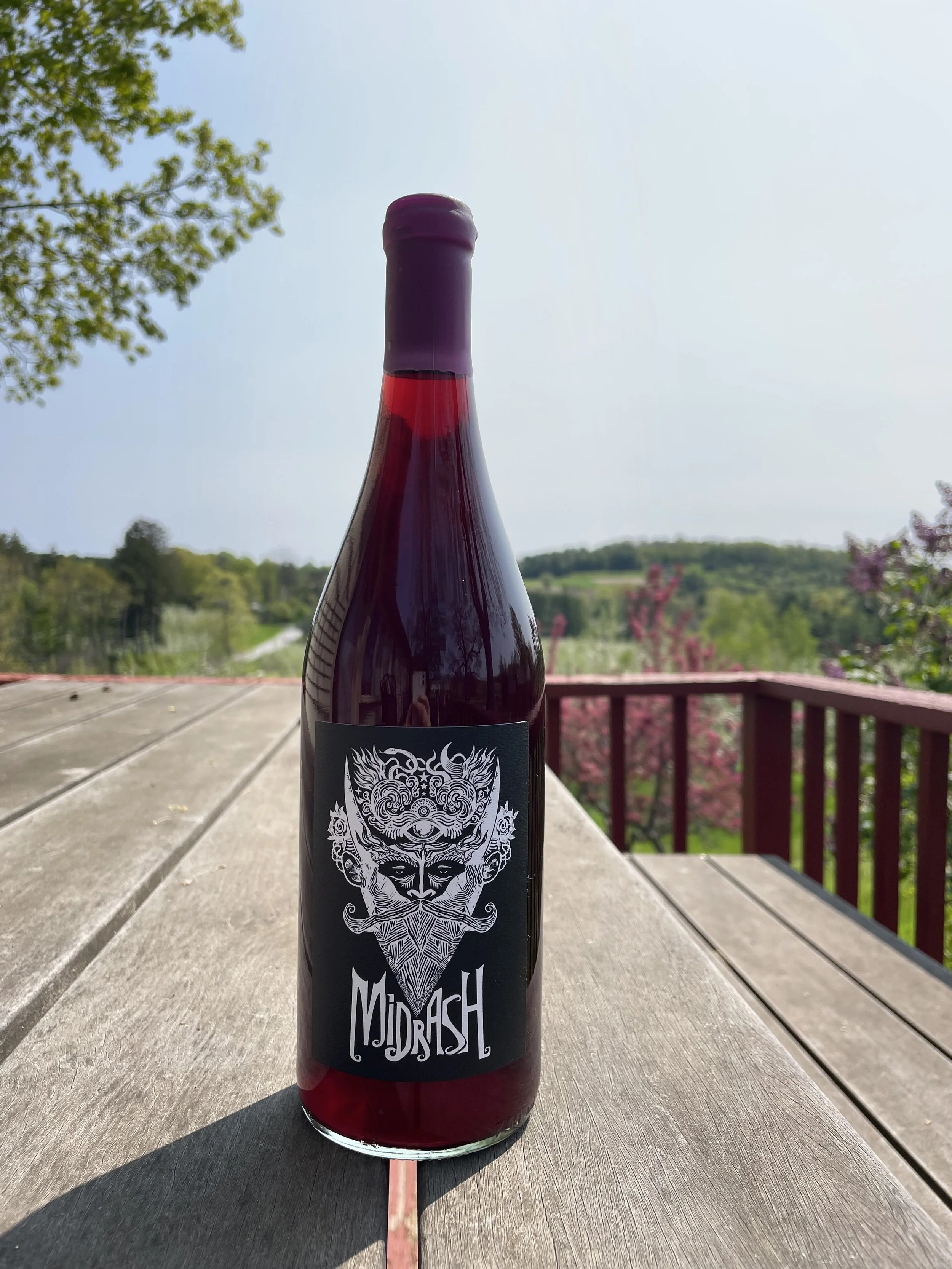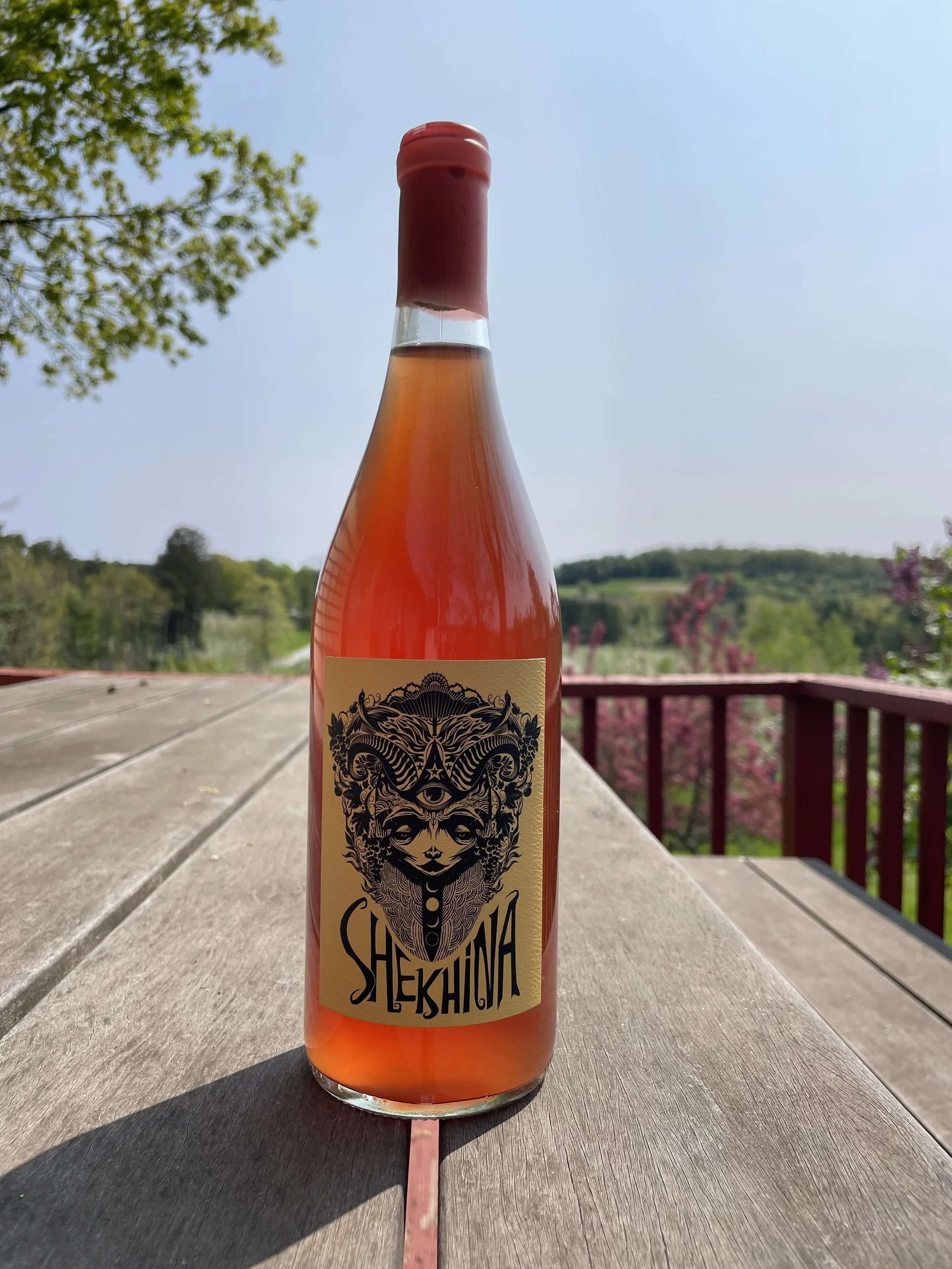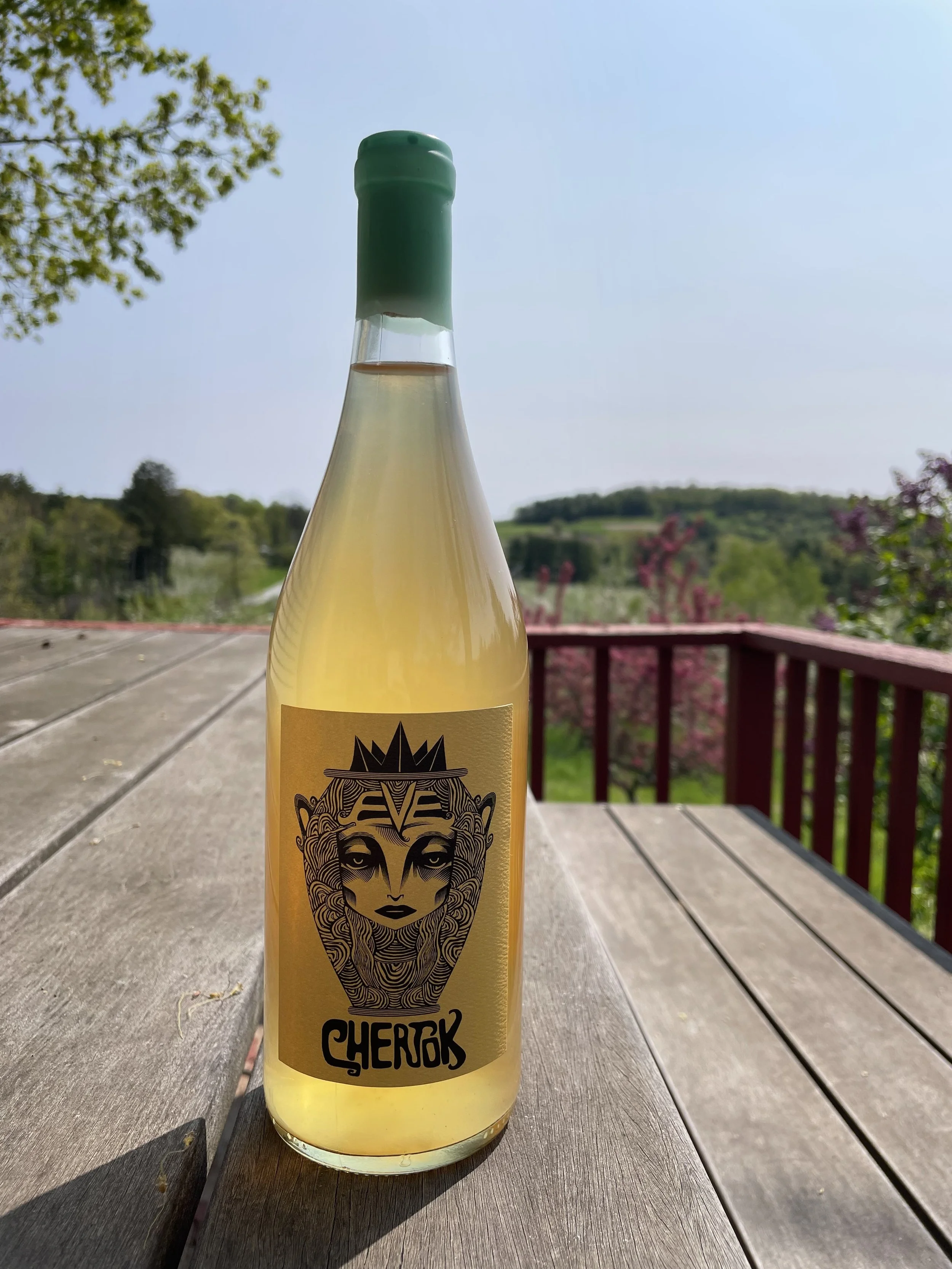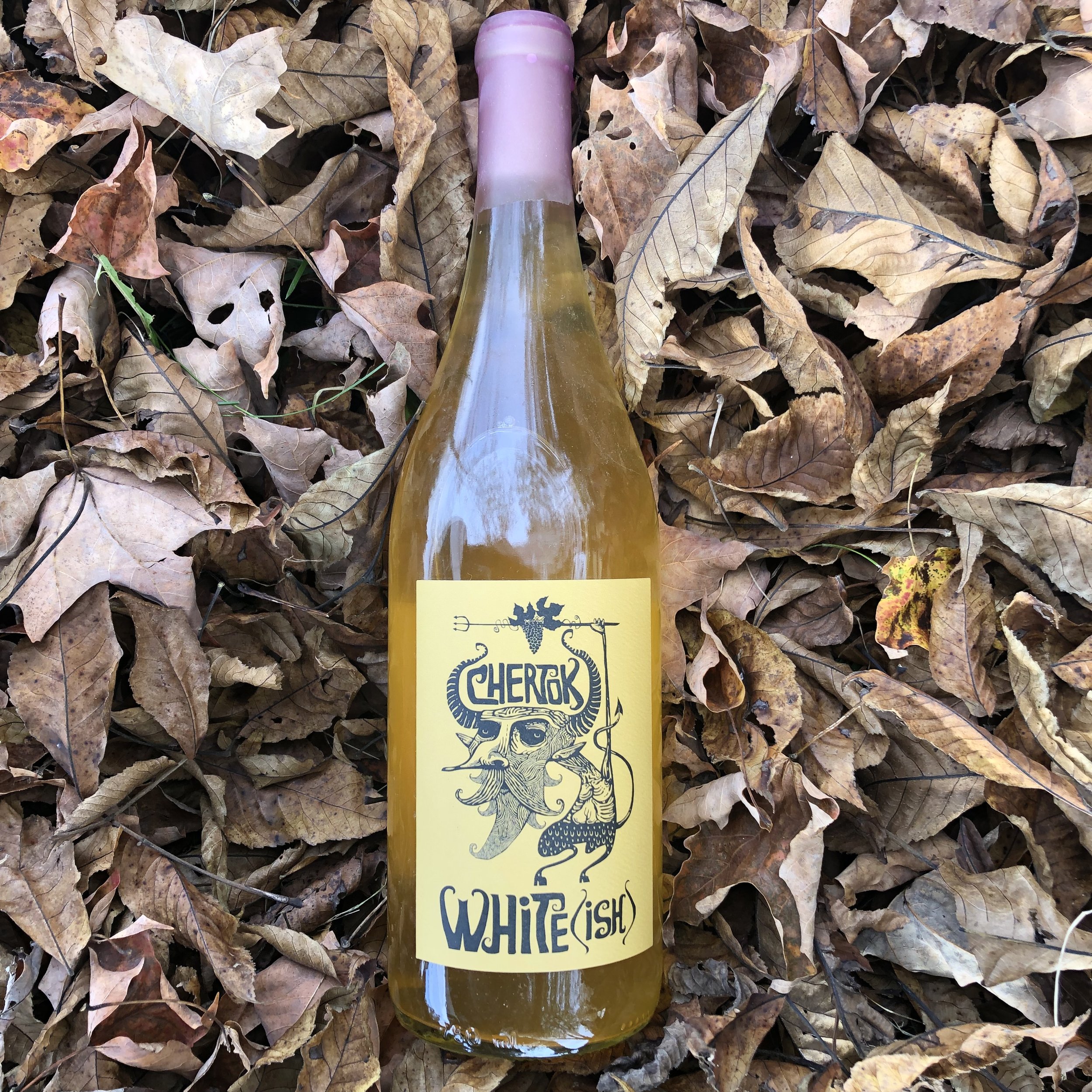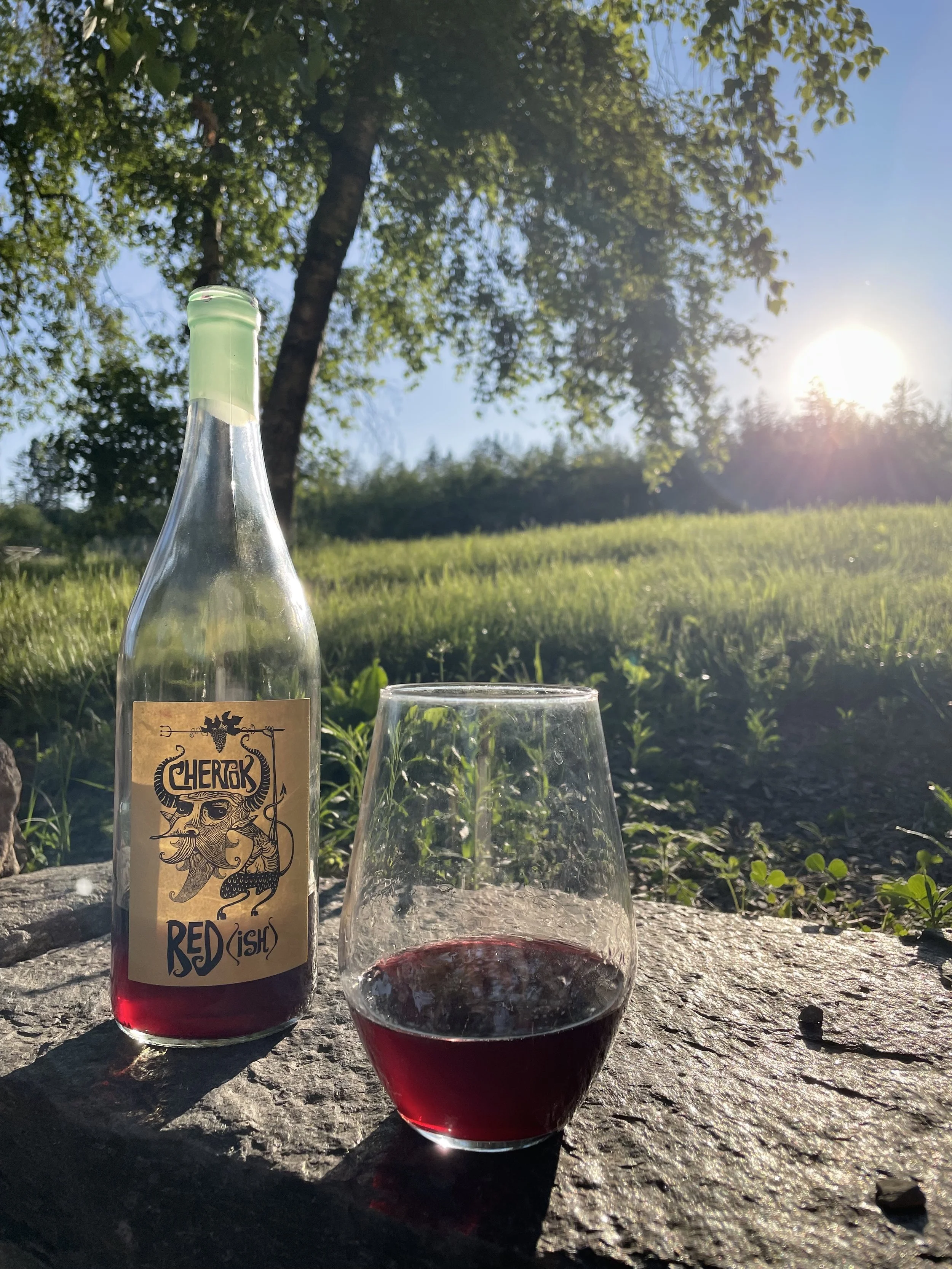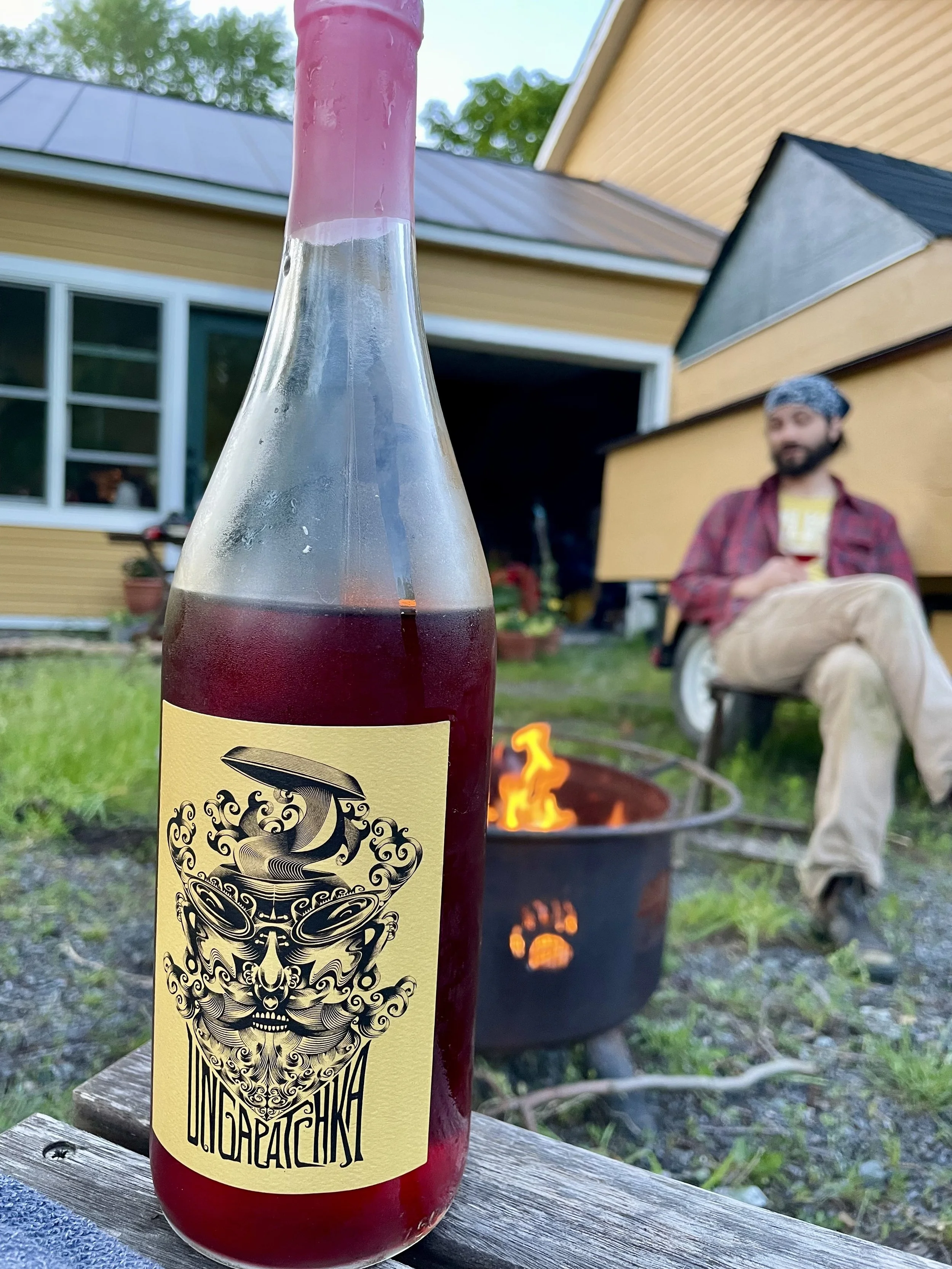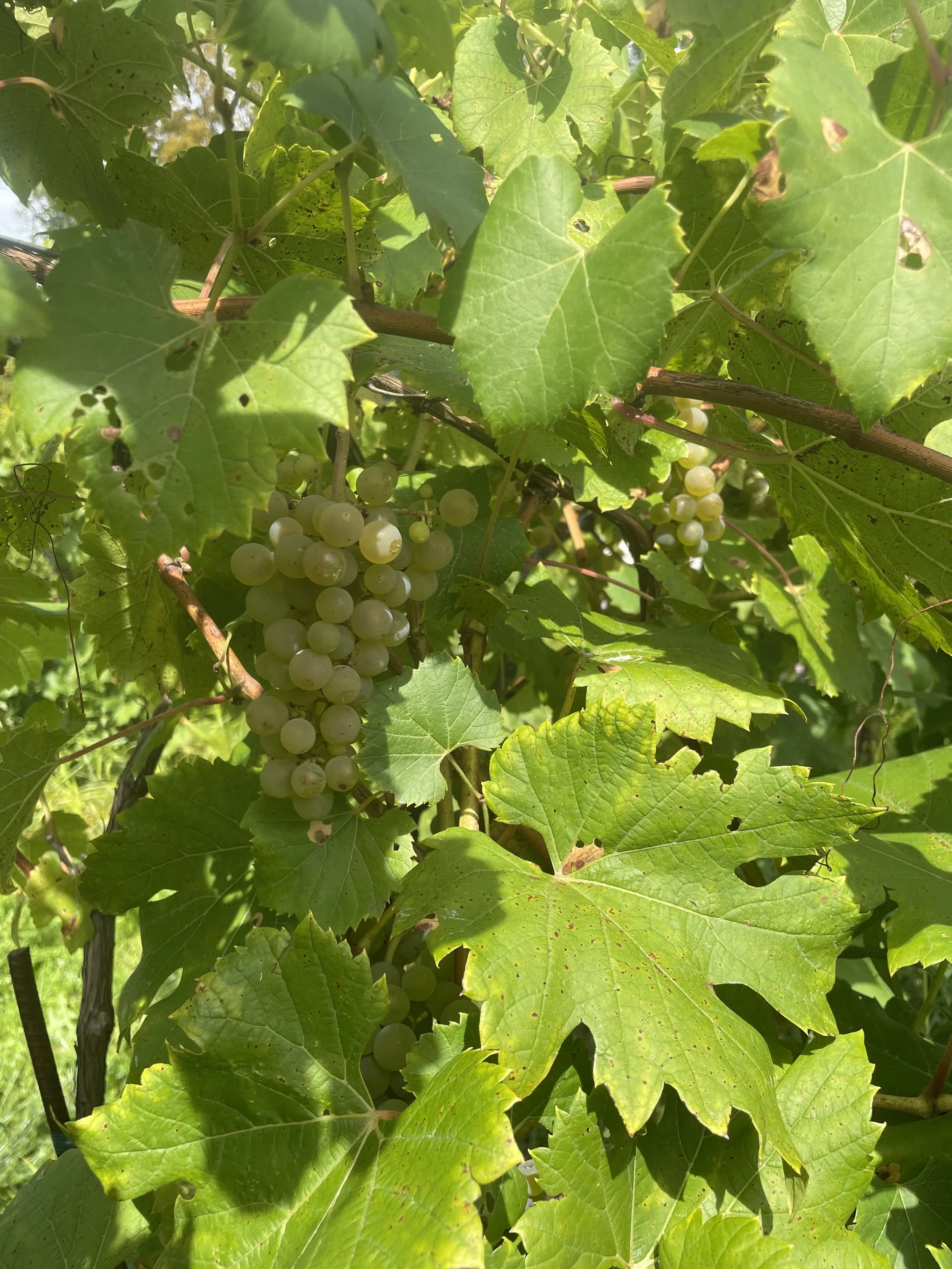
The Wines
In many ways what we do here is quite simple: take quality fruit, stomp on it, let it ferment of its own accord, and then put the juice somewhere to age until it’s good and ready. To this end, we utilize open-top fermenters, long macerations, and don’t mess with additives of any kind, with the notable exception of occasional modest sulfite additions when deemed necessary. No fining, no filtering, no fucking around. All of our wines are bottled avec schmutz.
Co-Fermentation
From our winemaker, Max: “When I first heard talk of working with apples and grapes in tandem I was totally dismissive. Frankly, it seemed cheap to me, a way to stretch one’s proper crop (grapes) further and get that novelty sale but I was sure no apple-grape coferment could achieve the same heights as pure grape wine. I am an idiot sometimes…”
A pressure cooker moment during the 2018 harvest resulted in the need to co-ferment a small amount of apples and grapes. It was one case worth, all of three gallons, and I thought it would be little more than a fun treat for Thanksgiving. Instead, what came out of the bottle was transformative. It was detailed, playful and utterly New England in style.
Over the intervening years, we have continued to refine the method for melding these two, distinct crops. It is a slow, laborious process but it produces wines that are far more than the sum of their parts. Each year we have dedicated more and more of our production to this category of products and at this point, pure grape or apple wines often feel like they’re leaving something special behind.
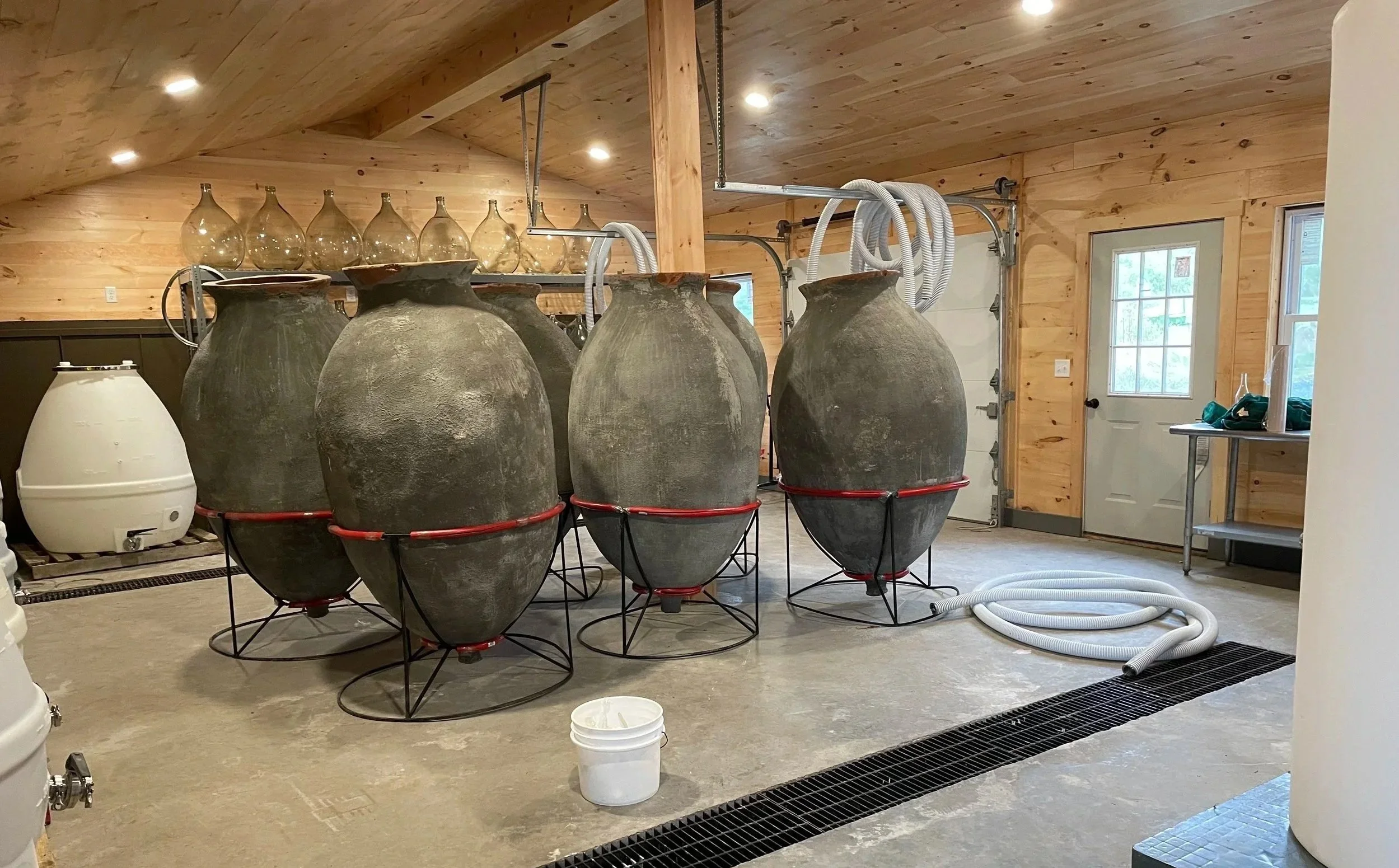
Clay-Aging with Georgian Qvevri
At the very end of 2021, our first year on the farm, we received 10 Qvevri made by traditional artisan Mahlaz Kapanadze in his old-fashioned workshop in the mountainous, southern region of Imareti. Each one of these is a slightly misshapen, unique vessel with slightly varying capacities and unlike modern amphorae, these vessels are so porous, so vulnerable that they're almost like keeping pets! They require quite a lot of extra labor to work with but we love the effect they have on the wines.
Max has been in love with clay-aged wine since since he first got into the business at the tender age of 21. During his time as a merchant in Boston, he became obsessed with Georgian wine and helped shepherd some of the greatest Georgian wines into MA for the first time. Hybrid grape varieties are notoriously acidic and aging the wines in an alkaline, oxidative environment seemed to be a wonderful way to achieve balance with these acerbic varieties.
Midrash 2021
Our core wine, a 50/50 co-ferment of long-macerated apples and grapes aged 8-9 months in polypropylene eggs, bottled without added sulfite.
Midrash is a Hebrew concept, a story we tell to explain the inexplicable and incongruous found in the text. Basically, it’s biblical fan fiction, but I've always liked the idea of using creative writing as a vehicle for exploration. For us, Midrash is the label we have on hand to describe our one-off, vintage specific wines that reveal a distinct narrative from a particular harvest. In this case, it's a wine made like our flirty Wine(ish) but with extremely high quality, late picked fruit from a vineyard we won't have access to again. It was a treat and we think the wine is sicknastyexcellent!
Shekhina 2022
A pink-hued co-ferment of 50% red and white grapes macerated with 50% farmstead apples, aged 6 months in polypropylene egg.
Shekhina is an abstract Talmudic and Kabbalistic concept. Translating literally to ‘dwelling’ or ‘eminence,’ Shekhina has many meanings to many different people but we like to think of it as representing the encompassing, queenly aspect of the divine that enfolds the mortal world. Mystic bad bitch energy for a pink wine with attitude!
Eve White 2022
A Qvevri-aged co-ferment of 50% Muscat Valvin macerated with 50% farmstead apples.
Qvevri are the primordial winemaking vessel. First used by winemakers in Georgia 8,000 years ago, we wanted to honor that history with a name that would evoke the fundamental, ancestral spirit of these amazing vessels. While the biblical story of Eve and the apple is often seen as a misogynist parable, there is a modern Jewish interpretation that reframes Eve’s decision as a necessary, ordained step towards human empowerment, driven by Eve’s unique curiosity and willingness to question. Seemed only right to name New England’s first Qvevri-aged wine after the mythic first woman that brought us out of the garden and gave us the world. Righteous.
Eve red 2021
A Qvevri aged co-ferment of 50% Frontenac Noir & Marquette grapes with 50% antique apple varieties.
The best lot of 2021 Midrash was racked separately to Qvevri for an extra 7 months aging. This wine reframes Midrash's juicy, extroversion in a more introspective light with the clay adding extra texture and depth.
White(ish) 2022
A whole cluster, skin contact white wine of Cayuga & Aromella.
Well, this one is a little less mystic than some of the other wines: it’s a skin-fermented white. Orange wine and amber wine have always felt like awkward descriptors but skin-contact sounds a little odd, too. Macerated white? Meh. How ‘bout just White(ish)?
RED(ISH) 2023
A juicy, joyful co-fermentation of Traminette and Noiret with 6-7 weeks maceration before press.
In many ways this was the wine that started it all! The very first wine we ever made back in our basement days was RED(ish) and every year I tried to find an excuse to get back to it but the stars just wouldn't align for us. In 2023 we finally had what we needed to make this and we're so delighted it's out in the world!
Some of our wines can be a little tricky to describe but not this one. It's simple, straightforward and absolutely crushable!
UNGAPATCHKA 2022
A kitchen sink blend of every damn grape we worked with in 2022, topped with a little cider and aged in Qvevri for 18 months!
This is a wine all about snatching victory from the jaws of defeat! A trucking issue in 2022 resulted in some of our grapes being left out overnight and getting REAL WEIRD real fast. Unwilling to simply toss the fruit, we did all we could and finally, seeing how raw and unhinged the wine was going we decided to test out an old Georgian winemaking notion that Qvevri can 'clean' a flawed wine. A year and a half of Qvevri aging later and holy crap is this wine a beaut! Zippy acidity, nice, integrated tannins and totally mysterious, alluring aromatics.
Mazik 2022
A youthful, still apple wine pressed after two and a half months of maceration.
Mazik is a Yiddish word used to describe an impish, mischievous figure, often used to refer to a puckish youngster. While we absolutely love the effect we get from our long macerated apple wines, the actual winemaking is a fairly awful experience. The lots are so decomposed by the time we press that it’s inevitably messy and challenging no matter how careful you try to be. As the younger, fresher echo of our long-aged apple wine, Mazik seemed the right title for a charming wine that causes so much trouble!

